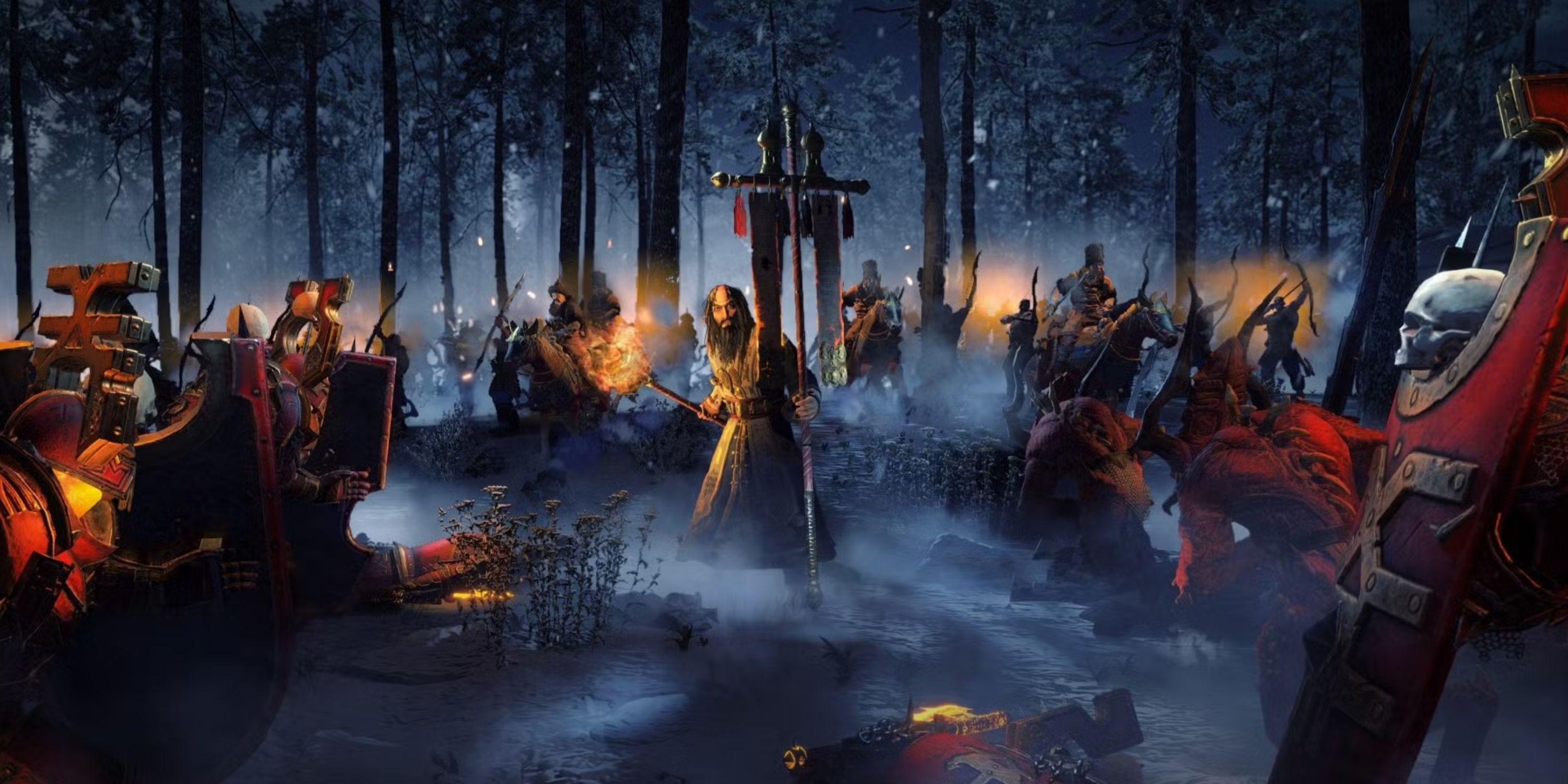Best Games That Let You Rule A Fantasy Kingdom
Description

Summary
- Kingdom sims offer a balance between control and chaos, from moral storytelling to mythic art styles.
- Majesty 2 brings intentional chaos as players act more as fantasy landlords rather than direct rulers.
- In fantasy kingdom sims like Songs of Conquest, decisions carry weight with strategic city-building elements.
There’s something irresistibly satisfying about taking charge of a realm, setting up your kingdom from scratch, and then watching it either thrive under your leadership or collapse because a giant spider walked through your wheat fields.
Fantasy kingdom sims scratch that itch that lies somewhere between control and chaos, and the best ones do it with style, strategy, and maybe a few fireballs. From charming indie cities in the sky to sprawling tactical wars filled with dragons and debt, these are the games that let players don the crown and rule their fantasy domains however they see fit.
Thronebreaker: The Witcher Tales
No Throne, Just A Deck Of Soldiers
This isn’t about building castles or assigning taxes. Thronebreaker is a kingdom management story told through the eyes of Queen Meve, a monarch who’s just as comfortable swinging a sword as she is commanding an army. What sets it apart is how it blends moral storytelling with Gwent-based battles, making even the simplest decisions ripple out across the realm in unexpected ways. Choices determine not just the fate of regions like Lyria and Rivia but the loyalty of companions, some of whom can straight-up abandon the queen if she strays too far off the path they believe in.
Despite being built on a card game, this is one of the most emotionally involved kingdom sims out there. Players who come for the deck-building often stay for the political drama and the branching consequences that feel heavier than any trebuchet. The art direction leans into a painterly, storybook style that gives the whole thing a mythic, old-world vibe, and the voice acting is good enough to make even minor characters memorable. Ruling a kingdom here is about personal stakes, not population numbers.
Majesty 2: The Fantasy Kingdom Sim
Send The Rogues, Not Commands
Nothing in Majesty 2 ever quite goes according to plan, and that’s kind of the point. Instead of direct control, players act as a sort of fantasy landlord, placing buildings and setting up rewards while hoping the AI-controlled heroes decide to stop drinking long enough to actually deal with the rat infestation in the east quarter. It’s chaos, but it’s intentional chaos. The joy comes from watching the kingdom come alive with unpredictable behavior from rogues, warriors, and wizards who all have their own ideas of what’s worth fighting for.
The game leans into a light-hearted tone but still requires actual strategic thinking. Players need to manage gold reserves, protect their economy from raids, and balance risky incentives just to get heroes to go where they’re needed. There’s also a surprisingly sharp sense of humor baked into every mechanic, from the overdramatic voiceovers to the way tax collectors run for their lives when trouble hits. It’s less about ruling with an iron fist and more like being the world’s most frustrated babysitter.
Kingdoms And Castles
Fire, Stone, And Poor Housing Decisions
At first glance, Kingdoms and Castles looks like someone tossed a bunch of medieval Lego pieces into a sandbox. But under that soft aesthetic lies a city builder that’s deceptively good at ramping up tension. What begins as a quiet little village surrounded by trees quickly turns into a fortress in progress, with players balancing food supply, infrastructure, and the occasional dragon deciding to barbecue your granary for fun. It’s as much about making something beautiful as it is about defending it from the chaos of fantasy threats.
What makes this one stand out is its pacing. The world doesn’t rush players, but it still punishes sloppy planning. Weather changes affect food production, Vikings can show up with zero chill, and fire spreads terrifyingly fast across wooden towns. Every building placed feels earned, especially once the kingdom survives its first winter without losing half the population to starvation or illness. There’s no complicated diplomacy or spell-slinging armies here, just good, clean, kingdom-building anxiety.
Northgard
Build Walls Fast, Winter’s Coming
Northgard takes the fantasy kingdom formula and throws it into a frozen Norse mythos filled with dire wolves, undead warriors, and territory that refuses to be tamed without a fight. Players don’t just expand because they want to; they expand because winter is coming and the current zone doesn’t grow enough food to keep everyone alive. Each clan in the game plays differently, from the wolf clan’s aggressive raids to the stag clan’s economic bonuses, adding replay value that changes the rhythm of each campaign.
Instead of massive cities, Northgard is about tight, efficient settlements and strategic tile-based expansion. Population caps are brutal, happiness can nosedive if warriors die without glory, and even the weather feels like a boss battle. There’s also a mythological flavor baked into the gameplay, with units like Valkyries or bonuses tied to ancient relics and lore knowledge. It’s not just about ruling a kingdom. It’s about surviving in one that actively wants to kill everyone.
Airborne Kingdom
Where Kingdoms Float, But Coal Is King
This one doesn’t follow the standard fantasy tropes. Airborne Kingdom trades swords and sorcery for propellers and suspended gardens, putting players in charge of an entire flying city that drifts across a mysterious desert world. Every expansion changes the city’s balance, literally. Add too much to the left side, and the whole thing tilts until structures become unusable. Managing food, water, and resources while staying afloat is less about power and more about sustainability.
Diplomacy also plays a role. The goal is to reconnect scattered kingdoms by solving their problems and earning their trust, creating a network of alliances instead of conquests. The world map is procedurally generated, which means every playthrough brings different ruins to explore and different trade routes to exploit. It’s a kingdom sim, sure, but one that asks players to think vertically and morally in a world where gravity is as much an enemy as scarcity.
Songs Of Conquest
Turns, Troops, And Tiny Pixel Glory
This spiritual successor to Heroes of Might and Magic blends turn-based tactics with kingdom management, then wraps it in some of the most gorgeous pixel art seen in modern strategy games. Players command powerful Wielders who march around the overworld gathering troops and casting spells, all while upgrading towns and managing resources like gold, stone, and glimmerweave. Each faction, from the undead Barony of Loth to the swampy Rana tribes, feels like its own storybook waiting to unfold.
While the turn-based battles are a major draw, the city-building side of Songs of Conquest is where the long-term planning happens. Towns specialize based on what players build early, with branching upgrade paths that lock others out, so decisions carry weight. It’s a kingdom builder that rewards both aggression and patience, where building a good economy is just as important as marching into battle with a well-balanced stack of units. And yes, the soundtrack slaps.
Total War: Warhammer 3
Not Just Total War, But Total Chaos
If running a kingdom means juggling politics, blood rituals, and multiple daemonic invasions at once, then Total War: Warhammer 3 is the full package. This game doesn’t ask if players want power. It demands they figure out what to do with it while being attacked from eight different directions. Each faction plays like its own ecosystem. Kislev balances religious devotion with economic upkeep, while Tzeentch thrives on manipulation and teleportation shenanigans that break the normal rules of warfare.
Kingdom building takes place on the campaign map, where players capture cities, manage public order, and unlock tech trees specific to their faction’s lore. The real-time battles are massive and often absurd, with flying units clashing over toxic swamps while magic rains down in blinding streaks. What makes it all click is how deeply it commits to the Warhammer universe. Even tiny mechanics like corruption levels or loyalty meters are rooted in lore. Ruling a kingdom here isn’t about stability. It’s about dominance through beautiful, overstimulating chaos.
Black & White 2
You Are The God Now, Peasant
Lionhead’s infamous god sim lets players act like a divine landlord with a mood swing problem. In Black & White 2, it’s not just about building a kingdom. It’s about choosing whether that kingdom thrives on benevolence or burns everything around it to the ground. Every choice, from how armies are used to how much grain is handed out during famine, affects alignment. Buildings shift in appearance based on moral leaning, and even the player’s godly creature changes behavior based on how it’s treated.
The kingdom management side is surprisingly detailed. Players assign workers, unlock upgrades, and even develop city layouts that reflect different cultural influences depending on conquest. But what makes it memorable is the way the world reacts to choices. Villagers either worship or fear their god, neighboring factions either rally or beg for peace, and the creature can grow into a literal house-flinging monster or a gentle giant who helps with farming. It’s absurd, but it’s glorious.




